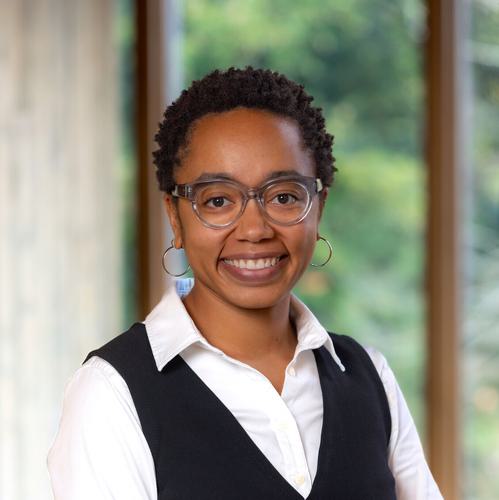
Adele Watkins
Assistant Professor of Philosophy
Primarily interested in ancient Greek and Roman philosophy and philosophy of race.
I am primarily interested in ancient Greek and Roman philosophy and philosophy of race; I also have a strong interest in social epistemology. I earned my Ph.D. in 2023 from Princeton University. Prior to Princeton, I completed my undergraduate work at Wellesley College, at which I participated in the Mellon Mays Undergraduate Fellowship program.
In my free time, I enjoy doting on my two cats and terrier mix, walking long distances, and vegetarian cooking.
Education
- B.A., Wellesley College
- M.A., Princeton University
- Ph.D., Princeton University